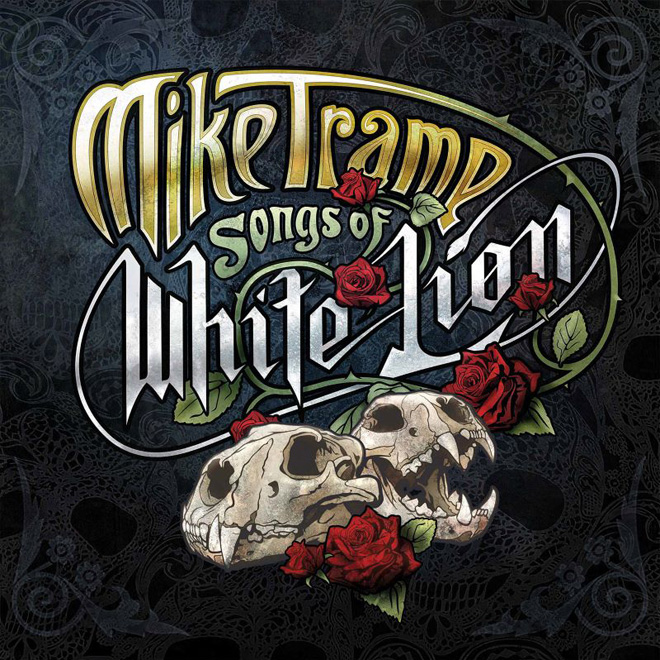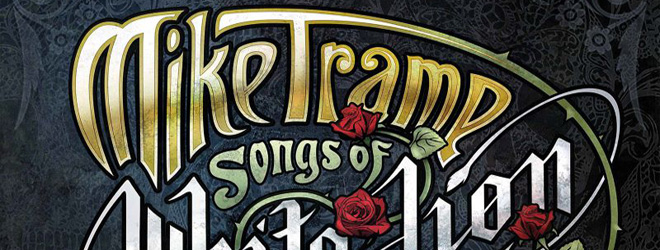The decision to revisit the past is never an easy choice. Pitfalls abound and often invite the ire of diehard fans and internet trolls alike. Just ask the likes of Beck, Manowar, Natalie Merchant, Black Veil Brides, St. Vincent, Suicidal Tendencies, and the endless list of other artists who have in some manner or another, reimagined old material years after its initial release. The YouTube comments alone are enough to necessitate a dose of Ativan.
Understandably, for well-respected Hard Rock vocalist and guitarist Mike Tramp, the decision to return to his White Lion roots was not simple. “For me, the period of 1983-1991 was a once-in-a-lifetime experience . . . When it came to an end, it was more than just the end of a band, it was also the end of a very specific time in my life . . . Over the next 20 years, I would revisit that time in my life in small parts but never felt 100% comfortable with it. I simply could not force myself to recreate what I once was,“ he confesses.
And yet, the idea planted a seed that recently blossomed into a new record. Released on April 14, 2023, thanks to Frontiers Music s.r.l., The Songs of White Lion sees the talented musician reimagining some of his former band’s best and brightest offerings, from the mega-hits “When the Children Cry” and “Wait” to deeper cuts like “All the Fallen Men” and “Lady of the Valley.” It’s a respectful tribute to the Hard Rock quartet that formed in 1983, then went on to deliver four studio collections—1985’s Fight to Survive, 1987’s Pride, 1989’s Big Game, and 1991’s Mane Attraction—before disbanding in 1992.
For Tramp, the end of White Lion was the beginning of a lengthy career, one that has allowed the multi-talented musician to embrace being a solo artist. Of course, dalliances in the world of White Lion have certainly occurred throughout the years, so, The Songs of White Lion should come as no major shock to longtime fans. Heavily influenced by its creator’s own brand of heartfelt and humble Rock-n-Roll, the album is a respectful tribute to the past. Produced alongside longtime collaborator Soren Andersen (Glenn Hughes, The Dead Daisies), it is a testament to the maturity of the artist who, as a bubbly twentysomething, had all the time in the world to wait—for love, life, and the day when he would settle comfortably into his own creative niche.
Suitably, there’s an intentional simplicity to the 12-song collection. Whereas some artists will take their old material and zhuzh it beyond the point of recognition, Tramp allows each song to be its own guide, adorning each new recording with only what feels organic to the artist that he has become. Similarly, it’s a compliment to his bandmates—Guitarist Marcus Nand, Bassist Claus Langeskov, Drummer Alan Tschicaja, Keyboardist Sebastian Groset, and Backing Vocalist Christoffer Stjerne—that their loving performance of the material never strays into cover band territory.
So, it’s really no major surprise that The Songs of White Lion proudly straddles guitar-anchored Rock and acoustic storytelling, a flawless sonic visual of Mike Tramp as an artist. And he sets the bar high, launching the record with “Lady of the Valley,” a reimagining that, in quality alone, kills its predecessor. Of course, purists are apt to cling to the soaring guitars of the original, but Nand does Vito Bratta’s original fretwork proudly with his tender reinterpretation. Not to be overlooked, our “mane attraction,” too, has grown in his vocal approach and range, reaching new heights that deliver more emotional textures to the tracks that he originally made famous in the ‘80s and early ‘90s.
Take “Broken Heart,” where the depth of feeling reaches further, and tugs harder, because the undeniable truth is that a good song, no matter how you slice it or what year you release it, is still a good song. This is true for so many of White Lion’s hits that appear within, from “Cry For Freedom” to “All the Fallen Men.” And what child of the ‘80s doesn’t remember “Little Fighter”? Although, in this singular instance, the fresh-faced energy of the original, flaws and all, has that intangible something that the mature and poised remake lacks. Perhaps it is childish innocence. Whatever the case, the original is a moment in time that cannot be truly recaptured. And that’s okay! Because tracks like “Love Don’t Come Easy” gain a new meaning here, allowing Tramp to embrace each lyric with the authenticity of a man who has lived, loved, and lost.
Understandably, the key moments for many fans will be “Wait” and “When the Children Cry,” each a quintessential edition to the White Lion catalog. For the former, without the leather and fringe, the high key lighting, and the teased hair, there’s a renewed focus on the lyrics, their longing, and the plea that each listener can feel resonating in their bones. But it is the latter that is the crowning gem of this collection, just as emotionally raw and devastatingly beautiful as it was when it first graced MTV and radio over three decades ago.
Ultimately, what shines through on The Songs of White Lion is the fact that Tramp has always been a transcendent storyteller with a solid sense of the world in which he is composing. Even as a twentysomething, his failure to place focus on banal sexual innuendos or low-brow clichés has allowed his music to stand the test of time. The record is a testament to a songwriter whose career has come full circle, seeing a lyricist ahead of his time in the ‘80s grow into an accomplished musician comfortable straddling genres to capture authenticity, sincerity, and those songs that will always find a home within your heart. For this, Cryptic Rock gives Mike Tramp’s The Songs of White Lion 4 out of 5 stars.








No comment